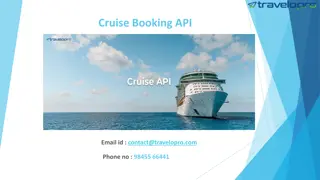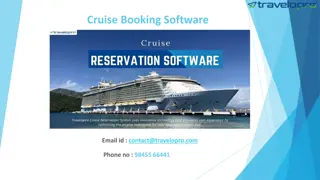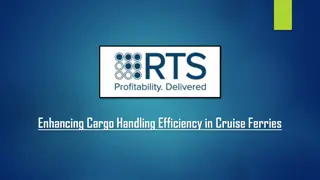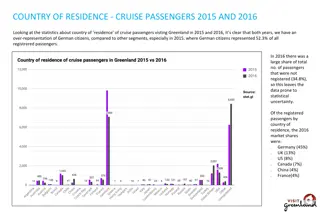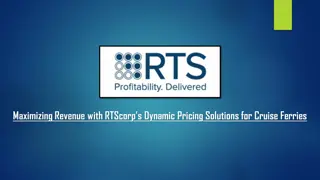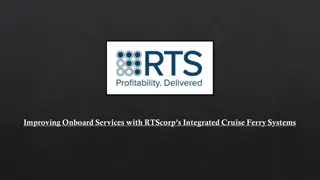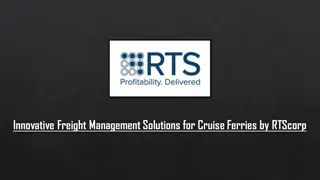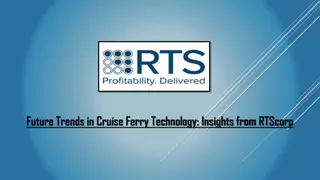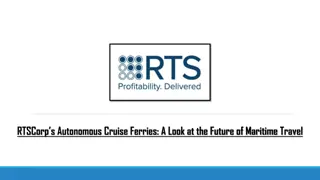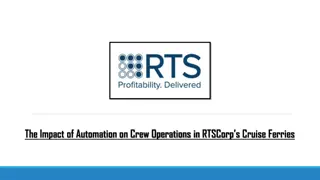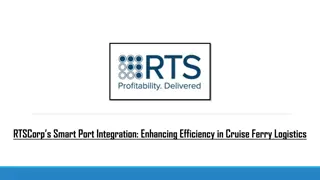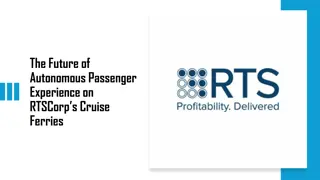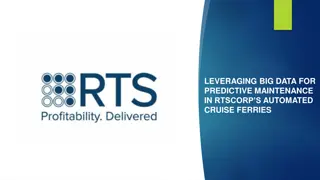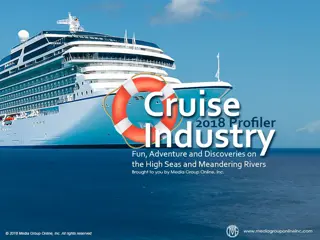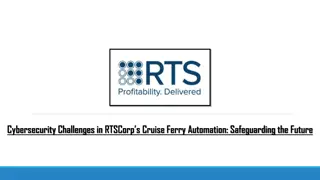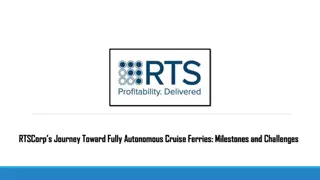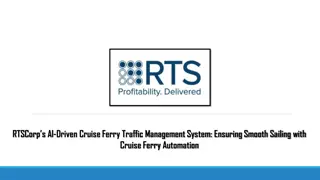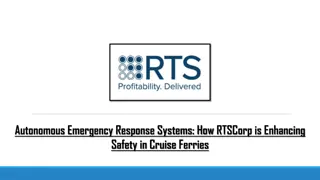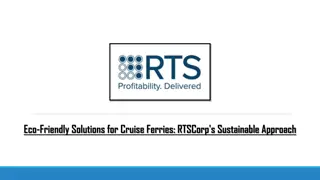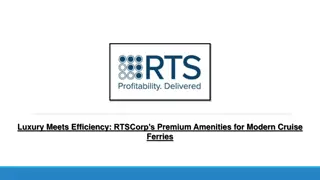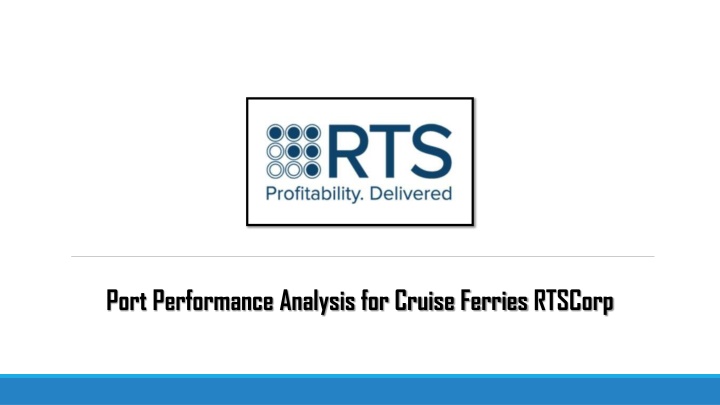
Port Performance Analysis for Cruise Ferries RTSCorp
In the dynamic and competitive world of maritime transportation, the cruise ferry sector plays a vital role in connecting travelers and goods across international waters. RTSCorp, a leader in the Cruise Ferry Business Analytics domain, focuses on har
Download Presentation

Please find below an Image/Link to download the presentation.
The content on the website is provided AS IS for your information and personal use only. It may not be sold, licensed, or shared on other websites without obtaining consent from the author. If you encounter any issues during the download, it is possible that the publisher has removed the file from their server.
You are allowed to download the files provided on this website for personal or commercial use, subject to the condition that they are used lawfully. All files are the property of their respective owners.
The content on the website is provided AS IS for your information and personal use only. It may not be sold, licensed, or shared on other websites without obtaining consent from the author.
E N D
Presentation Transcript
In the dynamic and competitive world of maritime transportation, the cruise ferry sector plays a vital role in connecting travelers and goods across international waters. RTSCorp, a leader in the Cruise Ferry Business Analytics domain, focuses on harnessing data-driven insights to optimize operations and elevate the overall performance of cruise ferries and associated port infrastructures.
Understanding Port Performance Port performance is a critical determinant of the cruise ferry business's success. Efficient port operations directly influence passenger satisfaction, cargo handling efficiency, and the overall profitability of the industry. Delays, inadequate resource allocation, and bottlenecks at ports can result in significant financial losses and tarnish customer experience. Role of Business Analytics Business analytics, particularly tailored for the cruise ferry industry, provides actionable insights that help organizations like RTSCorp enhance port performance. Leveraging advanced data analytics tools, RTSCorp monitors and evaluates key performance indicators (KPIs) such as turnaround times, berth occupancy rates, passenger throughput, and cargo handling efficiency. By collecting and analyzing data from multiple sources, including IoT devices, historical records, and real- time port operations, RTSCorp identifies inefficiencies and opportunities for improvement. For instance, predictive analytics can forecast peak traffic periods, enabling ports to allocate resources proactively and reduce congestion.
Optimizing Cruise Ferry Operations RTSCorp s analytics solutions empower cruise ferry operators to make informed decisions. By integrating data on weather conditions, vessel schedules, and passenger preferences, RTSCorp enhances route optimization and minimizes delays. Moreover, the company s tools ensure compliance with environmental regulations by monitoring emissions and fuel efficiency. In addition, RTSCorp collaborates with port authorities to streamline customs procedures, ensuring a seamless flow of passengers and goods. This partnership fosters a symbiotic relationship between cruise ferry operators and ports, further bolstering the industry s growth. The Future of Cruise Ferry Business Analytics As the maritime industry embraces digital transformation, the role of Cruise Ferry Business Analytics becomes increasingly pivotal. Innovations such as AI-driven automation, blockchain for transparent cargo tracking, and augmented reality for port staff training are revolutionizing how cruise ferries and ports operate. RTSCorp is at the forefront of these advancements, continually enhancing its analytics platforms to meet the evolving needs of the industry.
Conclusion Port performance analysis is integral to the cruise ferry sector's success. With RTSCorp s expertise in Cruise Ferry Business Analytics, stakeholders can navigate challenges and seize opportunities, ensuring operational excellence and superior customer experiences. By embracing data-driven strategies, the cruise ferry industry is poised to achieve sustainable growth and remain a cornerstone of global maritime connectivity.


